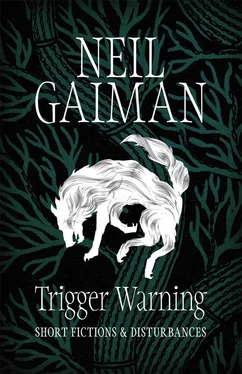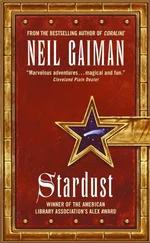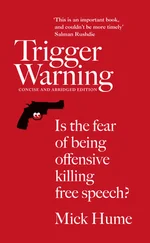Neil Gaiman - Trigger Warning - Short Fictions and Disturbances
Здесь есть возможность читать онлайн «Neil Gaiman - Trigger Warning - Short Fictions and Disturbances» весь текст электронной книги совершенно бесплатно (целиком полную версию без сокращений). В некоторых случаях можно слушать аудио, скачать через торрент в формате fb2 и присутствует краткое содержание. Год выпуска: 2015, Издательство: Headline, Жанр: Старинная литература, на английском языке. Описание произведения, (предисловие) а так же отзывы посетителей доступны на портале библиотеки ЛибКат.
- Название:Trigger Warning: Short Fictions and Disturbances
- Автор:
- Издательство:Headline
- Жанр:
- Год:2015
- ISBN:нет данных
- Рейтинг книги:4 / 5. Голосов: 1
-
Избранное:Добавить в избранное
- Отзывы:
-
Ваша оценка:
- 80
- 1
- 2
- 3
- 4
- 5
Trigger Warning: Short Fictions and Disturbances: краткое содержание, описание и аннотация
Предлагаем к чтению аннотацию, описание, краткое содержание или предисловие (зависит от того, что написал сам автор книги «Trigger Warning: Short Fictions and Disturbances»). Если вы не нашли необходимую информацию о книге — напишите в комментариях, мы постараемся отыскать её.
Trigger Warning: Short Fictions and Disturbances — читать онлайн бесплатно полную книгу (весь текст) целиком
Ниже представлен текст книги, разбитый по страницам. Система сохранения места последней прочитанной страницы, позволяет с удобством читать онлайн бесплатно книгу «Trigger Warning: Short Fictions and Disturbances», без необходимости каждый раз заново искать на чём Вы остановились. Поставьте закладку, и сможете в любой момент перейти на страницу, на которой закончили чтение.
Интервал:
Закладка:
That was when I said it. I was scared she would think I was mad, but I said it. ‘I made you up.’
‘No,’ she said. ‘You didn’t. I mean, obviously you didn’t. I’m really here.’ Then she said, ‘Would you like to touch me?’
I looked at her. At her face, and her posture, at her eyes. She was everything I had ever dreamed of in a woman. Everything I had been missing in other women. ‘Yes,’ I said. ‘Very much.’
‘Let’s eat our dinner first,’ she said. Then she said, ‘How long has it been since you were with a woman?’
‘I’m not gay,’ I protested. ‘I have girlfriends.’
‘I know,’ she said. ‘When was the last one?’
I tried to remember. Was it Brigitte? Or the stylist the ad agency had sent me to Iceland with? I was not certain. ‘Two years,’ I said. ‘Perhaps three. I just haven’t met the right person yet.’
‘You did once,’ she said. She opened her handbag then, a big floppy purple thing, pulled out a cardboard folder, opened it, removed a piece of paper, tape-browned at the corners. ‘See?’
I remembered it. How could I not? It had hung above my bed for years. She was looking around, as if talking to someone beyond the curtain. Cassandra, it said, 19th February, 1985. And it was signed, Stuart Innes . There is something at the same time both embarrassing and heartwarming about seeing your handwriting from when you were fifteen.
‘I came back from Canada in ’89,’ she said. ‘My parents’ marriage fell apart out there, and Mum wanted to come home. I wondered about you, what you were doing, so I went to your old address. The house was empty. Windows were broken. It was obvious nobody lived there any more. They’d knocked down the riding stables already – that made me so sad, I’d loved horses as a girl, obviously, but I walked through the house until I found your bedroom. It was obviously your bedroom, although all the furniture was gone. It still smelled like you. And this was still pinned to the wall. I didn’t think anyone would miss it.’
She smiled.
‘Who are you?’
‘Cassandra Carlisle. Aged thirty-four. Former actress. Failed playwright. Now running a community theatre in Norwood. Drama therapy. Hall for rent. Four plays a year, plus workshops, and a local panto. Who are you, Stuart?’
‘You know who I am.’ Then, ‘You know I’ve never met you before, don’t you?’
She nodded. She said, ‘Poor Stuart. You live just above here, don’t you?’
‘Yes. It’s a bit loud sometimes. But it’s handy for the tube. And the rent isn’t painful.’
‘Let’s pay the bill, and go upstairs.’
I reached out to touch the back of her hand. ‘Not yet,’ she said, moving her hand away before I could touch her. ‘We should talk first.’
So we went upstairs.
‘I like your flat,’ she said. ‘It looks exactly like the kind of place I imagine you being.’
‘It’s probably time to start thinking about getting something a bit bigger,’ I told her. ‘But it does me fine. There’s good light out the back for my studio – you can’t get the effect now, at night. But it’s great for painting.’
It’s strange, bringing someone home. It makes you see the place you live as if you’ve not been there before. There are two oil paintings of me in the lounge, from my short-lived career as an artists’ model (I did not have the patience to stand and pose for very long, a failing I know), blown-up advertising photos of me in the little kitchen and the loo, book covers with me on – romance covers, mostly – over the stairs.
I showed her the studio, and then the bedroom. She examined the Edwardian barbers’ chair I had rescued from an ancient place that closed down in Shoreditch. She sat down on the chair, pulled off her shoes.
‘Who was the first grown-up you liked?’ she asked.
‘Odd question. My mother, I suspect. Don’t know. Why?’
‘I was three, perhaps four. He was a postman called Mister Postie. He’d come in his little post van and bring me lovely things. Not every day. Just sometimes. Brown paper packages with my name on, and inside would be toys or sweets or something. He had a funny, friendly face with a knobby nose.’
‘And he was real? He sounds like somebody a kid would make up.’
‘He drove a post van inside the house. It wasn’t very big.’
She began to unbutton her blouse. It was cream-coloured, still flecked with splatters of ink. ‘What’s the first thing you actually remember? Not something you were told you did. That you really remember.’
‘Going to the seaside when I was three, with my mum and my dad.’
‘Do you remember it? Or do you remember being told about it?’
‘I don’t see what the point of this is . . .’
She stood up, wiggled, stepped out of her skirt. She wore a white bra, dark green panties, frayed. Very human: not something you would wear to impress a new lover. I wondered what her breasts would look like, when the bra came off. I wanted to stroke them, to touch them to my lips.
She walked from the chair to the bed, where I was sitting.
‘Lie down, now. On that side of the bed. I’ll be next to you. Don’t touch me.’
I lay down, my hands at my sides. She looked down at me. She said, ‘You’re so beautiful. I’m not honestly sure whether you’re my type. You would have been when I was fifteen, though. Nice and sweet and unthreatening. Artistic. Ponies. A riding stable. And I bet you never make a move on a girl unless you’re sure she’s ready, do you?’
‘No,’ I said. ‘I don’t suppose that I do.’
She lay down beside me.
‘You can touch me now,’ said Cassandra.
***
I had started thinking about Stuart again late last year. Stress, I think. Work was going well, up to a point, but I’d broken up with Pavel, who may or may not have been an actual bad hat although he certainly had his finger in many dodgy East European pies, and I was thinking about Internet dating. I had spent a stupid week joining the kind of websites that link you to old friends, and from there it was no distance to Jeremy ‘Scallie’ Porter, and to Stuart Innes.
I don’t think I could do it any more. I lack the single-mindedness, the attention to detail. Something else you lose when you get older.
Mister Postie used to come in his van when my parents had no time for me. He would smile his big gnomey smile, wink an eye at me, hand me a brown-paper parcel with Cassandra written on it in big block letters, and inside would be a chocolate, or a doll, or a book. His final present was a pink plastic microphone, and I would walk around the house singing into it or pretending to be on TV. It was the best present I had ever been given.
My parents did not ask about the gifts. I did not wonder who was actually sending them. They came with Mister Postie, who drove his little van down the hall and up to my bedroom door, and who always knocked three times. I was a demonstrative girl, and the next time I saw him, after the plastic microphone, I ran to him and threw my arms around his legs.
It’s hard to describe what happened then. He fell like snow, or like ash. For a moment I had been holding someone, then there was just powdery white stuff, and nothing.
I used to wish that Mister Postie would come back, after that, but he never did. He was over. After a while, he became embarrassing to remember: I had fallen for that .
So strange, this room.
I wonder why I could ever have thought that somebody who made me happy when I was fifteen would make me happy now. But Stuart was perfect: the riding stables (with ponies), and the painting (which showed me he was sensitive), and the inexperience with girls (so I could be his first) and how very, very tall, dark and handsome he would be. I liked the name, too: it was vaguely Scottish and (to my mind) sounded like the hero of a novel.
Читать дальшеИнтервал:
Закладка:
Похожие книги на «Trigger Warning: Short Fictions and Disturbances»
Представляем Вашему вниманию похожие книги на «Trigger Warning: Short Fictions and Disturbances» списком для выбора. Мы отобрали схожую по названию и смыслу литературу в надежде предоставить читателям больше вариантов отыскать новые, интересные, ещё непрочитанные произведения.
Обсуждение, отзывы о книге «Trigger Warning: Short Fictions and Disturbances» и просто собственные мнения читателей. Оставьте ваши комментарии, напишите, что Вы думаете о произведении, его смысле или главных героях. Укажите что конкретно понравилось, а что нет, и почему Вы так считаете.







